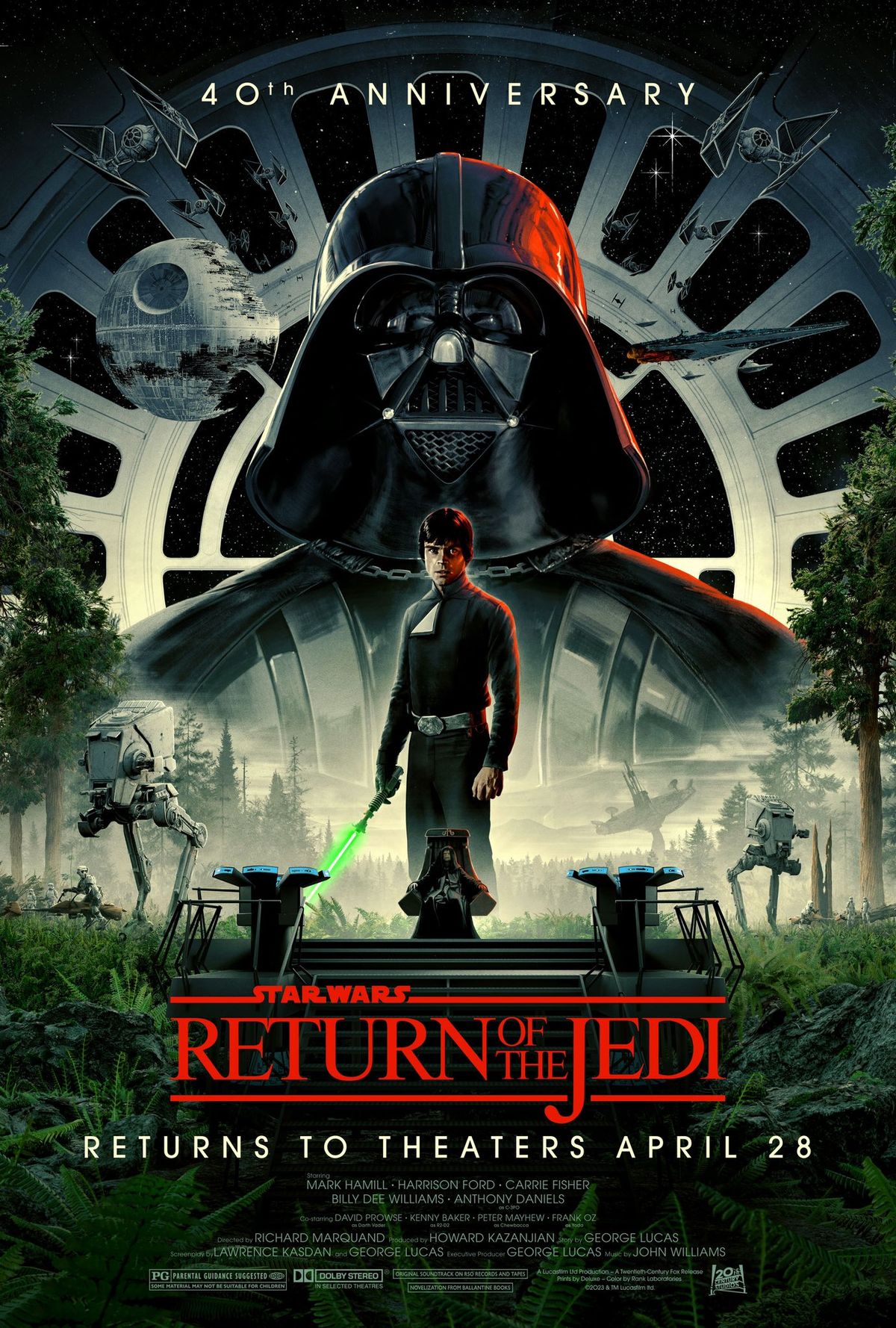Andor Book Scrapped: AI Fears Halt Star Wars Publication

Table of Contents
The Role of AI in the Alleged Plagiarism
The cancellation of the Andor book highlights the complex relationship between AI writing tools and the creative process. The rumors surrounding the project's demise center on the suspected use of AI in the novel's creation, leading to concerns about originality and copyright.
AI Writing Tools and Their Limitations
The prevalence of AI writing tools like Jasper, Copy.ai, and Rytr is rapidly increasing. These tools can generate human-quality text quickly and efficiently, even mimicking specific writing styles. This ease of use and accessibility poses a significant risk: it's become increasingly easy for authors to generate large quantities of text, blurring the lines between human creativity and AI assistance. However, these tools have significant limitations. They often struggle with nuanced storytelling, complex character development, and the creation of truly original ideas. They can be proficient in mimicking style, but struggle to generate the depth and emotional resonance that comes from human experience.
- Examples of popular AI writing tools: Jasper, Copy.ai, Rytr, Sudowrite, Writesonic.
- Ease of use and accessibility: Many AI writing tools offer user-friendly interfaces and require minimal technical expertise.
- Limitations of AI in understanding nuanced storytelling and character development: AI struggles to understand the subtleties of human emotion and create compelling, believable characters.
Concerns Regarding Copyright Infringement
The legal implications of using AI-generated content are still largely undefined. The question of ownership – does the AI own the generated content, or the user who prompted it? – remains a point of contention. This uncertainty makes proving AI involvement in plagiarism exceptionally difficult. Existing copyright laws are not adequately equipped to handle the unique challenges presented by AI.
- Debate on AI's ownership of generated content: Currently, there's no clear legal consensus on who owns the copyright to AI-generated works.
- Potential lawsuits and legal precedents related to AI plagiarism: As AI usage increases, the likelihood of copyright infringement lawsuits will also increase, establishing crucial legal precedents.
- The difficulty of proving AI involvement in unauthorized copying: Detecting AI-generated text can be challenging, making it difficult to prove plagiarism conclusively.
Lucasfilm's Decision to Scrap the Andor Book
Lucasfilm's decision to cancel the Andor novel was likely driven by a need to protect the Star Wars brand and maintain its high creative standards. The potential reputational damage associated with AI-generated content, even if unintentional, is likely a primary concern.
Protecting the Star Wars Brand
The Star Wars franchise is built on a foundation of high-quality storytelling, intricate world-building, and memorable characters. Any association with AI-generated content that compromises this quality, particularly suspected plagiarism, would severely damage the brand's reputation. Disney, the parent company of Lucasfilm, is known for its meticulous approach to brand management and risk mitigation.
- The importance of maintaining high creative standards for Star Wars material: Lucasfilm has a history of prioritizing quality and originality in its Star Wars productions.
- The potential for negative publicity and fan backlash related to AI usage: Fans are passionate about Star Wars, and any perceived compromise in quality or originality could result in significant negative backlash.
- Disney's cautious approach to new technology and its potential risks: Disney tends to adopt a cautious approach to new technologies, prioritizing risk assessment and brand protection.
The Financial Implications of Cancellation
Cancelling the Andor novel represents a substantial financial loss for Lucasfilm and Disney. This includes lost revenue from sales, marketing and promotional costs already invested, and potential compensation to the author(s). While the exact figures remain undisclosed, the costs are likely significant, demonstrating the high stakes involved in navigating the ethical and legal complexities of AI in publishing.
- Estimated financial loss from the cancelled novel: The potential revenue loss from a cancelled Star Wars novel is substantial, considering the franchise's vast fanbase.
- Compensation to the author(s) involved: Authors involved in the project may be entitled to compensation, adding to the overall financial cost of the cancellation.
- Cost of marketing and promotion already invested: Significant resources are often dedicated to marketing and promoting novels before release; these costs are lost when a project is cancelled.
The Future of AI and the Publishing Industry
The Andor book controversy highlights the urgent need for ethical guidelines and regulations governing the use of AI in writing and publishing. The implications for authors and creative professionals are substantial and require proactive solutions.
Ethical Considerations and Guidelines
The publishing industry needs to establish clear guidelines on the use of AI writing tools. This includes transparency requirements for authors, the development of AI-detection software, and industry-wide discussions on responsible AI implementation. Without such guidelines, the potential for misuse and ethical concerns will continue to grow.
- Proposals for transparency in the use of AI tools by authors: Authors should be required to disclose the use of AI tools in their work.
- Development of detection software to identify AI-generated text: Improved technology is needed to effectively detect AI-generated text and prevent plagiarism.
- Industry-wide discussions on responsible AI implementation: Open dialogue and collaboration are needed to establish ethical standards for AI use in publishing.
Impact on Authors and Creative Professionals
The rise of AI in writing raises concerns about job displacement for authors and other creative professionals. However, it also presents opportunities for collaboration between humans and AI, leading to new and innovative creative approaches. Adapting to this changing landscape will require upskilling, embracing new technologies, and redefining the role of human creativity in the writing process.
- Concerns about job displacement: The automation potential of AI raises concerns about the future employment of writers and other creative professionals.
- The need for adapting to a changing creative landscape: Authors and creative professionals will need to adapt their skills and strategies to thrive in an AI-driven environment.
- Opportunities for collaboration between humans and AI: AI can assist with tasks like editing, research, and brainstorming, freeing up human authors to focus on the more creative aspects of their work.
Conclusion
The cancellation of the Andor book serves as a stark reminder of the ethical and legal complexities surrounding the use of AI in creative writing. While AI offers exciting potential, the risks of plagiarism, copyright infringement, and reputational damage are substantial. Lucasfilm’s decision underscores the urgent need for careful consideration and clear guidelines for the responsible use of AI in the publishing industry. A transparent and ethical approach is vital to safeguard the integrity of storytelling and protect the rights of authors. The future of AI in the Star Wars universe and beyond hinges on a thoughtful dialogue on its responsible implementation. Stay informed about the ongoing debate regarding AI and its impact on the future of your favorite Andor and Star Wars publications. The debate surrounding the scrapped Andor book is just the beginning of a larger conversation about AI's role in the future of storytelling.

Featured Posts
-
 Top Cryptocurrency Investment Van Ecks 185 Prediction
May 08, 2025
Top Cryptocurrency Investment Van Ecks 185 Prediction
May 08, 2025 -
 Washington And Canada A New Chapter In Trade Relations
May 08, 2025
Washington And Canada A New Chapter In Trade Relations
May 08, 2025 -
 Princess Leias Return 3 Reasons To Expect A Cameo In The Upcoming Star Wars Show
May 08, 2025
Princess Leias Return 3 Reasons To Expect A Cameo In The Upcoming Star Wars Show
May 08, 2025 -
 The Champions League Final How Inter Beat Barcelona
May 08, 2025
The Champions League Final How Inter Beat Barcelona
May 08, 2025 -
 Andor Season 2 Significant Changes Promised By Diego Luna
May 08, 2025
Andor Season 2 Significant Changes Promised By Diego Luna
May 08, 2025
Latest Posts
-
 Hoe Brekelmans India Zo Veel Mogelijk Aan Zijn Zijde Wil Houden
May 09, 2025
Hoe Brekelmans India Zo Veel Mogelijk Aan Zijn Zijde Wil Houden
May 09, 2025 -
 De Indiase Strategie Van Brekelmans Doelen En Methoden
May 09, 2025
De Indiase Strategie Van Brekelmans Doelen En Methoden
May 09, 2025 -
 Analysis India Overtakes Uk France And Russia In Latest Power Index
May 09, 2025
Analysis India Overtakes Uk France And Russia In Latest Power Index
May 09, 2025 -
 Handhaven Van De Relatie Brekelmans India Kansen En Bedreigingen
May 09, 2025
Handhaven Van De Relatie Brekelmans India Kansen En Bedreigingen
May 09, 2025 -
 Global Power Shift Indias Ascent And The New World Order
May 09, 2025
Global Power Shift Indias Ascent And The New World Order
May 09, 2025
